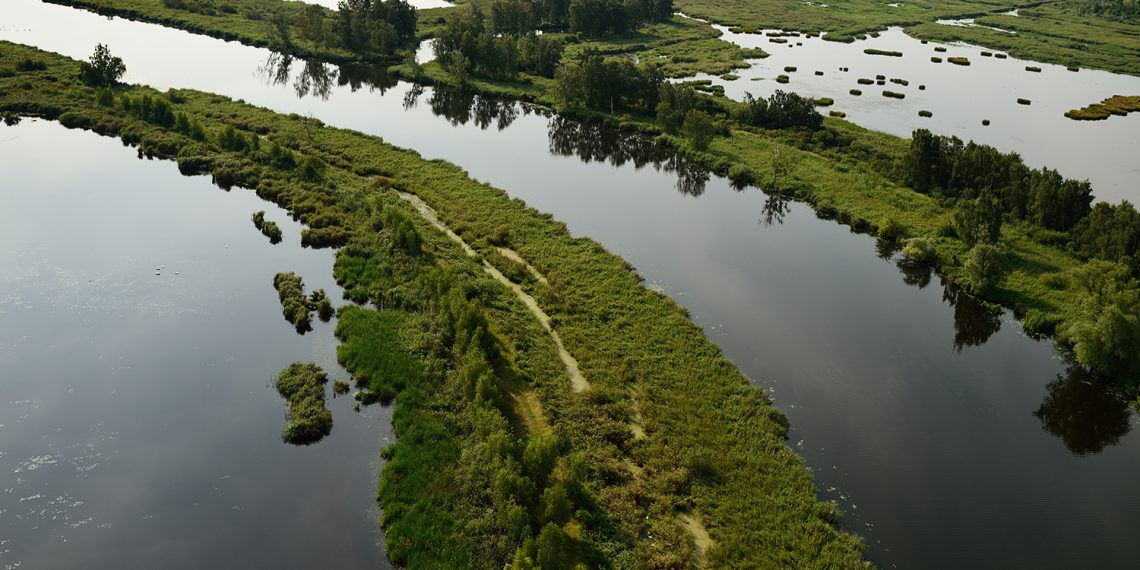As part of a three-year project, scientists and practitioners will examine the potential of “rewilding” for restoring biodiversity and promoting nature-based economic development. In addition, they will investigate the extent to which the experience gained from the Oder Delta model area can be transferred to supra-regional biodiversity conservation.
The research project REWILD_DE takes up the concept using the example of the only area in Germany and addresses the scientific and socio-economic questions as well as aspects of practical implementation. What opportunities does rewilding in different forms — such as stream restoration, natural grazing approaches, coexistence with wildlife — offer for the conservation and restoration of biodiversity? What ecosystem services in terms of regional economic and other societal benefits does it provide or support? How can rewilding strengthen regional economic potential? And finally: What role can it play for biodiversity and nature conservation in Germany? The project aims to find well-founded answers to these questions and to develop practice-oriented solutions.
During the three-year project period, it will be analyzed under which conditions biodiversity and ecosystem services can be valorized through rewilding in order to generate support from the affected stakeholders in the region around the Szczecin Lagoon. This instrumental perspective will be complemented by the development of a “rewilding dialogue” with local people. Through artistic approaches and public relations work, an understanding of guiding principles is to be achieved and appreciation for immaterial values of nature is to be promoted. The project wants to win representatives of important regional actors for a project-accompanying stakeholder advisory board. Finally, the project partners will also examine the implementation of rewilding in the Oder delta in order to be able to comprehensively assess the extent to which the concept is suitable for nature conservation in other areas of Germany.
A specific model
Stopping biodiversity loss is a key challenge at the global, European and German levels. In this context, rewilding has increasingly come into the spotlight in recent years as a particularly promising, participatory and process-oriented method of biodiversity and nature conservation. By re-allowing natural processes, promoting natural wildlife presence and density, and strongly involving local people and stakeholders, rewilding aims to strengthen the adaptive capacity of ecosystems to promote biodiversity and provide ecosystem services. In doing so, economic use of the areas is not ruled out; on the contrary, great importance is attached to strengthening the regional natural economic potential and sustainable value creation. Rewilding also contributes significantly to achieving the goals of the current UN Decade of Ecosystem Restoration.
The area
The concept is increasingly being applied worldwide — in Europe, it is supported in an exemplary manner by the “Rewilding Europe” organization in nine model areas. Since 2015, one of them stretches on both sides of the German-Polish border around the Szczecin Lagoon: the Oder Delta. Initial rewilding efforts began here back in 2012, and since 2019 the newly founded Rewilding Oder Delta (ROD) association has been networking, bundling and supplementing the activities of a wide range of partners, such as companies or start-ups, and working closely with the region’s nature parks.

















